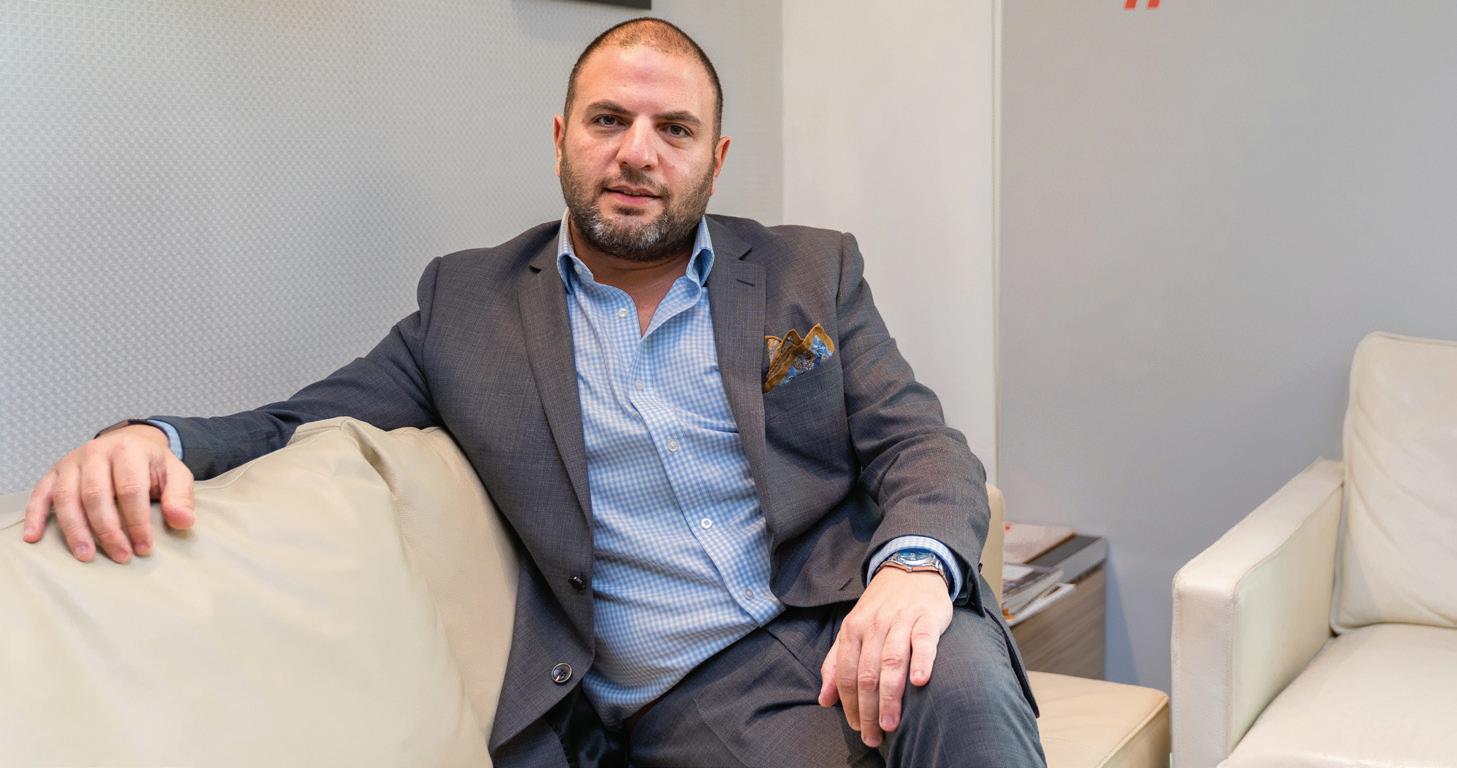
5 minute read
Embracing the new dawn in the UAE
from May June 2021
by MEA Business
One of the core strengths of Dubai and the entire UAE is that it is at the forefront of innovation, not just in the region but even in comparison with the rest of the world, says George Hojeige, CEO of Virtuzone
George Hojeige, CEO, Virtuzone.
Advertisement
How can Dubai or the UAE, remain competitive and further cement its position as the startup capital of the MENA region and the world?
One of the core strengths of Dubai and the entire UAE is that it is at the forefront of innovation, not just in the region but even in comparison with the rest of the world. As a strong advocate of innovation, the UAE has been actively adopting emerging technologies, such as artificial intelligence (AI), robotics and 3D printing, boosting its reputation as a leader in innovation and the region’s technological hub.
Through this position, the UAE attracts investors and entrepreneurs who are keen on developing new technologies. The Dubai government’s commitment to innovation gives entrepreneurs, companies, and innovators the confidence to push the limits when it comes to developing new ideas and technologies owing to the availability of ini-
DUBAI’S MAIN STRENGTH HAS ALWAYS BEEN ITS AGILITY AND CAPABILITY TO MAKE DECISIONS QUICKLY AND IMPLEMENT THEM. THIS HAS BEEN A HUGE ADVANTAGE.
GEORGE HOJEIGE
tiatives, infrastructure, and a conducive ecosystem to advance support their projects.
Dubai also attracts people who are keen to use the latest technologies and wants to be pioneers in using and leveraging cutting-edge technologies to give their businesses a competitive edge in their respective markets.
The implementation of the latest technologies also helps accelerate business processes, which translates to significant savings in both time and cost while increasing efficiency and production capacity. These factors give startups the boost and competitive edge they require to enter the market strong and vie for market share with established players.
Lifestyle is also a big factor. The UAE’s openness to change and willingness to embrace new ideas helps put people at ease here and gives them a sense of long-term security. Foreigners can visualize a home for themselves in the UAE, which is why entrepreneurs and investors are willing to establish their businesses in the Emirates.
GEORGE HOJEIGE
Dubai is one of the safest cities in the world and the outbreak of the pandemic has proven the effectiveness of the government in planning and mitigating risk. The UAE boasts of one of the world’s most organized and agile structures when it comes to combatting COVID-19. The country has one of the highest inoculation rates in the world. In the UAE, healthcare is very accessible to all including tourists and the cumulative result of all of that is that the country has the situation under control and right on track to recovery.
What separates Dubai/the UAE from other business hubs in the world such as Hong Kong, New York and London?
The biggest incentive is the UAE’s 0% corporate and personal income tax regime, as well as its low VAT and the lower cost of living compared with Hong Kong, New York, and London. For example, in New York, the corporate tax ranges from 4.425% to 9% depending on the type of corporation. For small businesses, the applicable tax is around 6.5% to 8.85%.
In Hong Kong, they have a two-tiered tax regime where companies may pay 8.25% or 16.5% depending on their profits, while unincorporated businesses may pay 7.5% or 15% – depending on their profits. In cases where the two-tiered system does not apply, the default tax is 16.5% for companies and 15% for unincorporated businesses. While in London, the UK, they are planning to increase corporate tax to 25%.
For investors who want to optimize their taxes, then the choice is obvious: You would want to set up in the UAE and benefit from its 0% tax benefits.
The UAE is also strategically positioned, so it gives both local and international businesses access to new and emerging markets not just in the Middle East, but also in Africa and Central Asia. That’s one of the reasons we established Virtuzone CIS in Astana International Financial Centre in Kazakhstan. We are bridging UAE-based companies and global businesses that want to do business in Central Asia and explore the trade and business opportunities in the Commonwealth of Independent States (CIS) countries and even China.
The UAE also boasts of corporate facilities and business centers that are at a world-class level, but they are still a more affordable solution compared with other business hubs like Hong Kong and New York. The country also has a large expat community that makes it easier and more welcoming for foreign investors coming from any part of the world making it easier to connect with other entrepreneurs, build a network and settle in.

In which areas should the government increase its collaboration with the private sector and how?
For startups, one of the biggest challenges is funding. Although we have seen the UAE actively supporting startups through funding initiatives, accelerator and incubator programs, we expect to see even better results if the public and private sectors increase their collaboration and better align on their objectives to provide easy access to funding.
There should also be increased public and private collaboration to create a conducive environment for the startup community, so we can see real, tangible results and, hopefully, exponential growth. There is an increase in the number of entrepreneurs who are applying for operating licenses despite the global impact of COVID-19 on economic activities. The country needs to be well equipped to meet this increase in demand as well as empower startups – because they are key to cultivating a strong, resilient economy.
Another area of focus for public-private collaboration should be the sectors that will especially be pivotal in the future: fintech, digital technologies, blockchain and digital banking.
Banking is a big concern for many new entrepreneurs and startups, as it can be challenging to open a bank account. As fintech is increasingly becoming a part of our daily lives, we expect more fintech startups in the future, hence the country needs to be well prepared for the future including streamlining regulation for the fintech sector.










